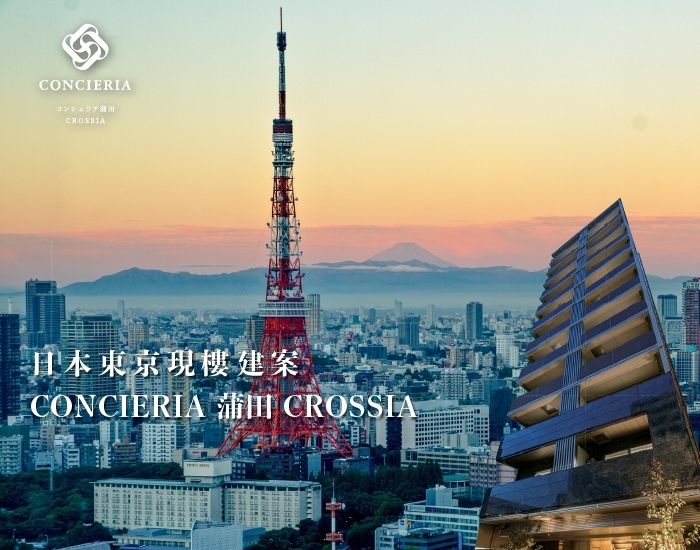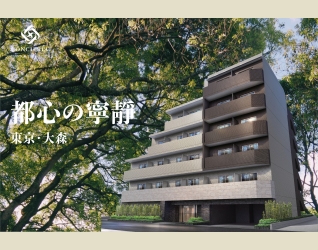Tokyo Property
The popularity of Tokyo properties has nothing to do with the fact that Tokyo is the most attractive city in the Asia Pacific region. The 2017 Global Cities Power Index (GPCI) report, which surveyed investors in the Asia Pacific region, placed Tokyo in 3rd place out of 44 cities. Tokyo property is cheap, has a high rate of return, and property prices are fairly stable, so investment risk is naturally lower. When you invest in Japan, you can buy out the freehold of the land, which is a very good deal.
In recent years, Japanese developers have been actively developing properties in the city centre and the Tokyo Olympic Games event, which was due to take place in 2020, has seen property prices in Tokyo rise to their highest level in nearly 29 years. The secondary property market was particularly buoyant, with prices rising by 4% after adjustment, but the primary market was down, by 3% after adjustment. Japan also became a popular investment destination for foreigners, with flat sales in Tokyo and Osaka, two popular areas, increasing by 2.4% and 1.4% respectively.
Tokyo has always been a popular destination for tourists from all over the world, and the number of visitors to Tokyo is on the rise every year. If you purchase a property in Tokyo for your B&B business, you do not need to worry about the customer base. In addition, favourable factors such as the Tokyo Olympic Games, Osaka Expo and Osaka Casino will boost the local economy and drive the investment boom, making Japan one of the regions with the highest potential for investment returns, and it is expected that overseas interest in investing in Tokyo will increase significantly.
Second-hand property prices in Tokyo vary from a few hundred thousand to several million Hong Kong dollars. In downtown areas such as Umeda and Osaka Station, the influx of investors has pushed up property prices in recent years, and the increase in rental properties has depressed rental returns.
Many people like to compare property prices in Japan with those in Hong Kong. In recent years, Tokyo properties have attracted a lot of attention because of the size and stability of the Japanese economy, the good living environment, the high quality of education, the health care system and the accessibility of transportation, all of which are important to investors. Despite the occasional earthquakes in Japan, all Japanese properties are said to be equipped with seismic-resistant systems, which is the most advanced technology in the world and has made many investors less wary. It is also expected that the rate of return on property in Japan will remain high due to the country's continued negative interest rate policy, which is also a major attraction for investors.
Tokyo properties have their own unique partitioning, which is quite different from that of Hong Kong properties. Bedrooms are separated from kitchens in Tokyo flats, with a usable area of about 300 square feet, and bathrooms and toilets are carefully separated. Properties in the more prime areas of Tokyo (such as Chiyoda and Minato-ku) are more suitable for investment as the per capita income is higher in Tokyo. The current entry fees for new properties in the area range from HK$2.5 million to HK$3 million and the rental return is around 4-6%, with smaller units offering better rental returns.
In recent years, the Japanese government has become increasingly open to the importation of foreign talent. In the past, the policy was very strict, but due to an ageing population and a shortage of labour, the Japanese government is relaxing the requirements for professional foreigners to work in Japan year by year. Many Hong Kong people come to work in Japan because of the country's increasingly liberal immigration policy, and they hope that after working there for a few years, they will be able to immigrate to Japan and obtain permanent residency. The Yamanote Line, which connects most of the major districts in Tokyo such as Shinagawa, Akihabara, Shinjuku, Ikebukuro, and the Takanawa Gateway Station, which opened last year, is also a must-see. Takanawa Station started operating in March last year and was originally built to ease the flow of people to the 2020 Tokyo Olympic Games. It is the 30th station on the Yamanote Line and will also be served by the Keihin Tohoku Line. The Yamanote Line connects a number of important areas and is one of the most convenient ways to get around Tokyo.
CONCIERIA KAMATA CROSSIA, TOKYO
Tokyo, Japan
From JPY 34,000,000*
Details





